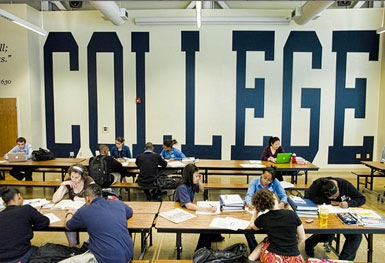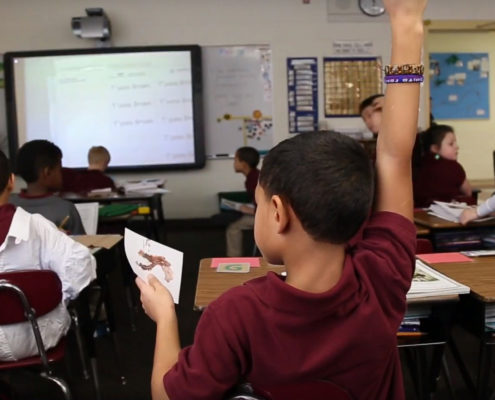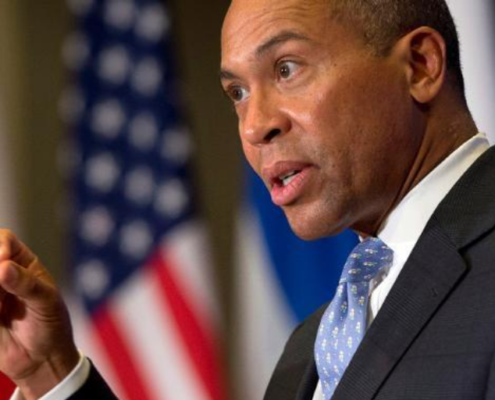
MBTAAnalysis: A look inside the MBTA
0 Comments
/
The MBTA shuttles over a million passengers a day around Greater…
 https://pioneerinstitute.org/wp-content/uploads/CloseupClock-1.jpg
739
1244
Mary Connaughton
https://pioneerinstitute.org/wp-content/uploads/logo_440x96.png
Mary Connaughton2017-02-20 12:34:192017-02-21 09:47:58The Clock is Ticking…….
https://pioneerinstitute.org/wp-content/uploads/CloseupClock-1.jpg
739
1244
Mary Connaughton
https://pioneerinstitute.org/wp-content/uploads/logo_440x96.png
Mary Connaughton2017-02-20 12:34:192017-02-21 09:47:58The Clock is Ticking…….
Massachusetts Charter Public Schools: Best Practices in Character Education
This report explores two high performing Massachusetts charter public schools—Abby Kelley Foster Charter School in Worcester, MA and the Brooke Charter School Network of Boston, MA—and how they approach character education. This study is part of a series of papers from Pioneer highlighting best practices in the charter sector.

The Inevitability of Character Education
This report explores the reasons for a lack of focus on character education in U.S. public schools. The author also proposes six activities that appear to be effective in bringing about positive difference in the lives of children.

Survey of Summer Enrichment Programs at Independent and Parochial Schools in Massachusetts
A survey of more than 70 Massachusetts private and parochial schools found that most offer academically-oriented summer programs, which have been found to prevent summer learning loss and can help close the achievement gap among student groups. The survey is the first of a three-part study that will yield a comprehensive guide to summer enrichment programs in the commonwealth.

Assessing Charter School Funding in 2016
This study contends that Massachusetts’ charter school funding formula should maintain the shared responsibility of state and local governments to fund education, but improvements could address a number of weaknesses and allow money to more easily follow students.

UMass At A Crossroads
This paper is the first in Pioneer Institute’s UMass at a Crossroads series. In this study, Pioneer focuses on UMass’ significant growth in two areas, academic competitiveness and student enrollment, compared to other New England state universities, MA private universities, national private universities and national public universities. Pioneer raises the question of whether the continued expansion of UMass, based largely on increased enrollment of out-of-state students, is in the best interest of the commonwealth.

Massachusetts Charter Public Schools: Best Practices Using Data to Improve Student Achievement in Holyoke
This report profiles the Holyoke Community Charter School (HCCS) in Holyoke, Mass. and the SABIS-designed systems that the school uses; systems that relate to curriculum, assessments, and the gathering of school level data pertaining to both. Drawing upon school- and state-generated data and interviews with HCCS students and faculty, this cases study describes how SABIS’s integrated approach to curriculum, assessment, and data-driven instruction engages students in a way that encourages them to take ownership of their own learning—something rarely seen in schools, especially at the K-8 level.

Massachusetts Charter Public Schools: Best Practices Using Data to Improve Student Achievement in Springfield
The following paper profiles SABIS International Charter School (SICS) in Springfield and the SABIS-designed systems that the school uses; systems that relate to curriculum, assessments, and the gathering of school level data pertaining to both. SICS has been named a “top high school” by US News & World Report for five years running. Drawing upon school- and state-generated data, this cases study describes how SABIS’s integrated approach to curriculum, assessment, and data-driven instruction engages students in a way that encourages them to take ownership of their own learning.

Fordham Institute’s Pretend Research
The Thomas B. Fordham Institute has released a report, Evaluating the Content and Quality of Next Generation Assessments, ostensibly an evaluative comparison of four testing programs, the Common Core-derived SBAC and PARCC, ACT’s Aspire, and the Commonwealth of Massachusetts’ MCAS. The latest Fordham Institute Common Core apologia is not so much research as a caricature of it.

Massachusetts Charter Public Schools Best Practices in Curricular Innovation
This paper highlights two Massachusetts charter schools that offer curricular opportunities rarely available in other public schools in Massachusetts. Both of these schools enable students to achieve exceptional results in comparison to their peers in traditional district schools. Understanding some of the important innovations that charter schools offer to students and families can productively inform the current policy debate.

Massachusetts Charter Public Schools Best Practices: Serving English Language Learners
This report draws on interviews with school leaders and classroom observations in three Massachusetts charter school organizations to describe some of the successful strategies used to enable large ELL populations to achieve at high levels. The report applauds holding charter schools accountable for recruiting and retaining ELLs and other special populations, but warns against “punishing” schools that succeed in helping students shift out of a category based on academic achievement.

Setting Academic Performance Standards MCAS vs PARCC
Author and career testing expert Dr. Richard Phelps writes that adopting PARCC would result in a one-half year drop in performance expectations for 4th grade math and reading, and 8th grade math, in Massachusetts. He also argues that critics of MCAS misunderstand its intended purpose, and explains why this is problematic.

Advanced Civics for U.S. History Teachers: Professional Development Models Focusing On The Founding Documents
A resurgence of interest in civic virtue and a new emphasis on teaching civics in our schools is needed in our country. Teachers need opportunities beyond college to learn the intricacies of government and how to teach it. Pioneer Institute reached out to four professional development programs with nationally known reputations to learn more about their offerings.

How PARCC’s False Rigor Stunts the Academic Growth of all Students
This report concludes that revising and updating MCAS would result in lower costs and more rigorous assessments that would provide better information about student performance than adopting PARCC.

Expanding Access to Vocational-Technical Education in Massachusetts
This paper explores why vocational education has become such a popular option in Massachusetts, and why 52 Bay State cities and towns do not have access to either district or regional career vocational technical programs. It also examines funding for vocational- technical education. While vocational-technical education is more expensive than traditional high school, it would cost the state less than ½% of the FY16 education budget to provide 5,000 more CVTE placements in Massachusetts.

A Critical Review of the Massachusetts Next Generation Science and Technology/Engineering Standards
Massachusetts’ draft pre-K through introductory high school Science and Technology / Engineering standards contain such startling gaps in science that they should be withdrawn from consideration.

Proving the Viability of a School Choice Voucher
In “Proving the Viability of a School Choice Voucher,” author Scott Haller surveyed 107 religiously affiliated private schools across Massachusetts including Catholic, Jewish, Adventist, Baptist, Islamic and Episcopal schools. The report found that an annual voucher of between $6,000 and $8,000 would be sufficient to provide low-income students access to an education in the majority of religiously affiliated Massachusetts K-12 schools.

Modeling Urban Scholarship Vouchers in Massachusetts
Vouchers have the potential to do many things - improve family satisfaction, reduce racial isolation, and strengthen educational outcomes for both the recipients and the children remaining in public schools - all at little or no net cost to taxpayers. The program described in this paper could provide 10,000 students from low-income families with the choices that other families already possess.

Federal Overreach and Common Core
This report provides the historical background and interpretive analysis needed to understand controversies surrounding Common Core and its associated tests.

Support & Defend: The K-12 Education of Military-Connected Children
In-depth analysis of how the Department of Defense Education Activity (DoDEA) provides high-quality education to more than 84,000 eligible Military-Connected Children in more than 190 schools around the world and scores above the national averages on nearly all standardized assessments. This report also examines efforts to expand that success to Military-Connected Children attending non-DoDEA schools.

Pioneer Institute Statement on MBAE PARCC/MCAS Study
The Massachusetts Business Alliance for Education (MBAE) continues its advocacy for Common Core and the Partnership for Assessment of Readiness for College and Careers (PARCC), a federally funded testing consortium, with the release of a study concluding that Massachusetts Comprehensive Assessment System (MCAS) performance is not an indicator of preparedness for higher education success.

Why Massachusetts Should Abandon the PARCC tests and the 2011 Coleman et al English Language Arts Standards on which the MCAS Tests are Based
Stotsky first describes her qualifications, as well as the lack of relevant qualifications in Common Core’s standards writers and in most of the members of Common Core’s Validation Committee, on which she served in 2009-2010.

Great Teachers Are Not Born, They Are Made: Case Study Evidence from Massachusetts Charters
This report highlights five high-performing charter schools that have assembled and trained highly effective teaching workforces. These include networks include Lowell Collegiate Charter Public School, City on a Hill Charter Public Schools, Advanced Math and Science Academy, the Francis W. Parker Charter Essential School, and Match Charter Public Schools.

Expanding METCO and Closing Achievement Gaps
The paper begins by examining segregation in the United States and in Massachusetts. While schools became more racially balanced in the 1970s, that trend has been reversed in more recent decades. In Massachusetts more than one quarter of African American students and similar numbers of Hispanic students attend heavily segregated schools.

Innovation Interrupted: How the Achievement Gap Act of 2010 Has Redefined Charter Schooling in Massachusetts
Massachusetts charter schools are among the highest performing in the country, as measured by standardized test results. Despite this, the Commonwealth has created a difficult policy environment for growing new and existing charter schools, one that is defined by a statewide cap on the number of charter schools that can exist and a Smart Cap, enacted in 2010, which raised the cap on charter schools in certain underperforming districts.

Filling the Skills Gap: Massachusetts Vocational-Technical Schools and Business Partnerships
Society is recognizing that in today’s economy, many graduates of four-year liberal arts colleges are looking for work, while students from career vocational technical schools are finding high-skill, high wage jobs. Why? Because they have marketable, industry-sanctioned competencies and employability skills.

Imperiling the Republic: The Fate of U.S. History Instruction under Common Core
The Founders of the American experiment in democracy assumed that understanding American history was essential in a Union where publicspirited citizenship and the capacity to live under laws “wholesome and necessary for the public good” would characterize the new nation. To proceed without the knowledge of history, in their view, was a sure path to “a tragedy or a farce.”

Study Finds Common Core Math Standards Will Reduce Enrollment in High-Level High School Math Courses, Dumb Down College Stem Curriculum
However, the greatest harm to higher education may accrue from the alignment of the SAT to Common Core’s high school standards, converting the SAT from an adaptable test predictive of college work to an inflexible retrospective test aligned to and locking in a low level of mathematics. This means that future SAT scores will be less informative to college admission counselors than they now are, and that the SAT will lose its role in locating students with high STEM potential in high schools with weak mathematics and science instruction.

The Good, the Bad and the Ugly Eight Patrick Administration Budgets Later
Has Massachusetts made progress towards providing a better quality of life for its residents while maintaining financial stability over the past decade or so? In July 2014, Governor Deval Patrick signed into law the eighth and final budget of his administration with only a few vetoes and recommendations to the General Court. Five years after the financial crisis, this is an opportune moment to review and reflect upon the fiscal state of Massachusetts and what has changed since the beginning of this governorship more than seven years ago.

Meeting the Commonwealth’s Demand: Lifting the Cap on Charter Public Schools in Massachusetts
Charter public schools are one of the few public school choice options available in Massachusetts largely due to restrictions the state constitution imposes on public education spending. Charters outperform traditional public schools; statewide, charter school students gain an additional month and a half of learning in English and two and a half months in math compared to students in traditional public schools.

Giving Kids Credit: Using Scholarship Tax Credits to Increase Educational Opportunity in Massachusetts
While higher-income families have a plethora of K-12 educational options, lower-income families’ options are often limited to the local district school to which they are assigned. This paper proposes a constitutional and fiscally responsible method of expanding educational options for low-income families.
